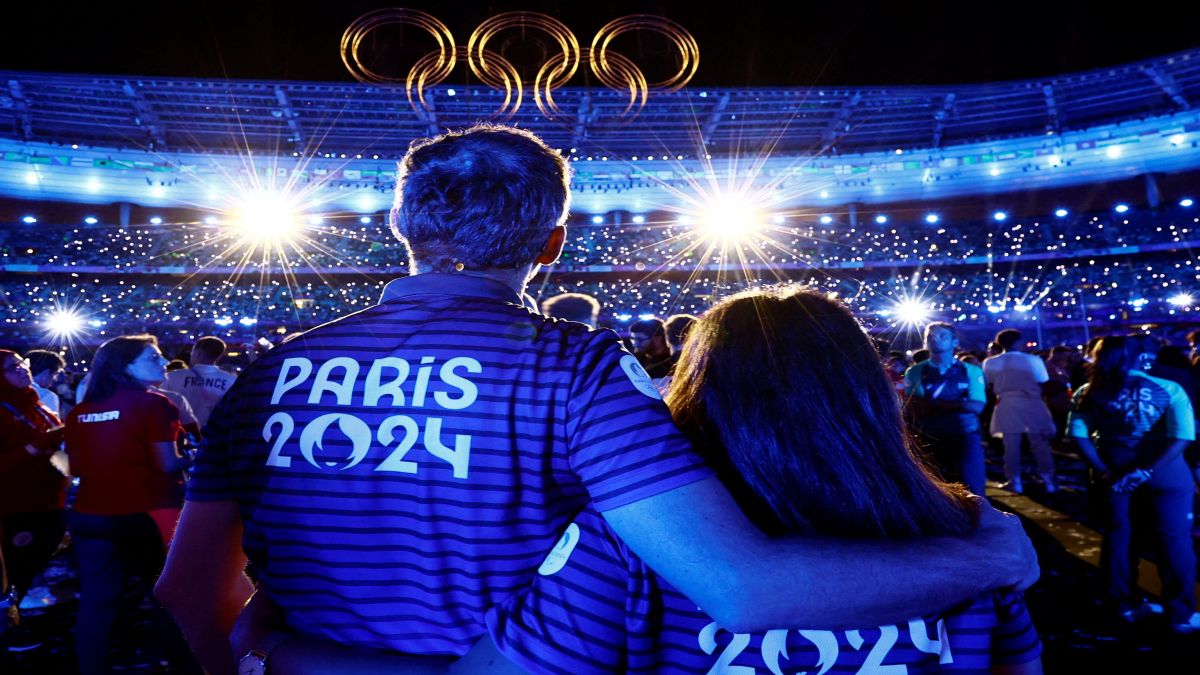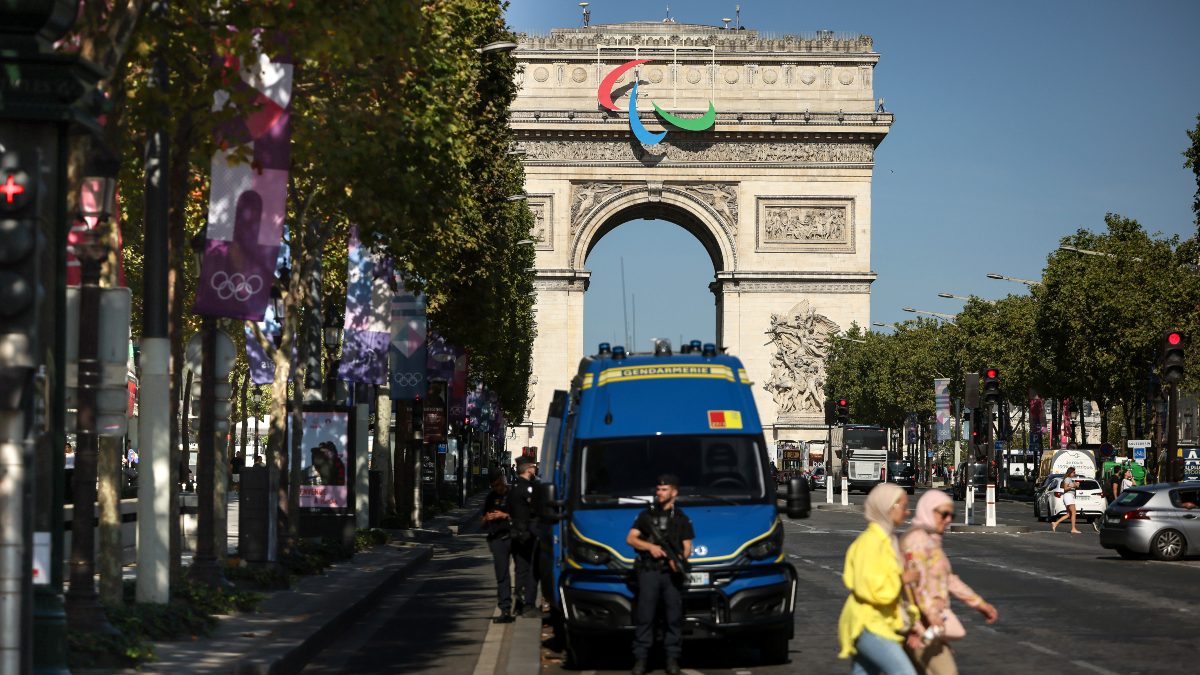The Paris Games have come to an end and many athletes suffer from what they term as ‘Olympic comedown’. It becomes an existential crisis, with many asking ‘what now’ or ‘what does all this mean’ read more
)
Athletes and the Olympic rings during the closing ceremony at the Paris 2024 Olympics. Reuters
Imagine hearing a crowd of roaring fans every time you make an appearance. Thousands of camera flashes follow your every move. Each moment of your life taken up with preparation for your big moment: training, performing, media interviews and photo shoots. Then imagine going back to your daily life again – acclimatising to the everyday mundanity of bills, returning to your day job and resuming household chores.
What happens when the crowds stop screaming and you have to deal with the shift back to ordinary life?
Feeling a void
With the Olympic Games finishing on August 11, those of us who’ve been watching the excitement – and possibly experienced vicarious satisfaction – may also experience a sense of emptiness. But it’s nothing compared to the void Olympic many athletes will experience in the aftermath of the games.
For athletes returning home from the Olympic Games, their journey is usually accompanied by a radical change in environment and considerable physical and mental shifts. A different climate, sights and smells and the lack of excited echoes in anticipation-filled arenas. Suddenly the hype surrounding an athlete’s performance diminishes and their intense training schedule reverts to normal as their bodies recover.
For athletes, the build-up to the Olympic Games is a four-year cycle, demanding huge personal and professional sacrifices and bringing with it an enormous amount of pressure.
The event itself is an experience of sensory overload – the huge crowds and deafening noise. Add to that the pressure of performing on the global stage and – for a fortnight at least – the celebrity status that comes with being an Olympic athlete.
Some athletes thrive in such an environment, particularly on home turf. But for others, it can be a nightmare experience.
Even veteran Olympic athletes, such as US gymnast and 11 times Olympic medallist Simone Biles and former US swimmer Michael Phelps – the most successful and most decorated swimmer of all time – have opened up about their post-Olympic blues.
Looking back, Phelps said in May 2024: “2004 was my first taste of post-Olympic depression, you know, coming off such a high.” Nile Wilson, British artistic gymnast and Olympic bronze medallist has spoken publicly about his experience of Olympic comedown.
“ Comedown” is a term usually associated with withdrawal from stimulant drugs. But the feelings experienced by athletes are not so different. The high athletes get from their sport has been linked to the release of the hormone adrenaline. The Olympic comedown is a response to the “high” that is experienced from the release of adrenaline during the games.
Adrenaline addiction is often connected to extreme sport participants but studies have shown that addictive disorders – including alcohol, drugs and gambling – can affect athletes across a range of sports.
Success can become like a drug to elite athletes. And, unfortunately, for some the “high” from winning and attention may be replaced with other addictions once the competition is over. Athletes report feeling like “ rock stars” – one professional wrestler commented that “there’s no better drug” than their sport.
Prolonged media attention can delay a bout of post-Olympic blues but for many athletes retiring from elite sport altogether, this transition from feeling like a celebrity to becoming a regular person again can present a significant risk to their psychological health and wellbeing. Replacing the sporting experience with something constructive can be a challenge.
Coping with post-event blues
Many athletes have a strong but narrow sense of identity – what they do is a huge part of who they are. Once athletes return from the Olympics, they may experience an existential crisis, asking themselves “what now?”, or “what does all this mean?”
But this doesn’t have to be a negative experience. Studies have demonstrated that when athletes stop their sport it can be an opportunity for reflection, clarification of values, and a search for alternative ways of living.
Preparing the mind and body to wind down for one’s health is just as important as psyching up to perform. A 2022 study reported that this sort of preparation and athlete support is still lacking.
Days before 800m runner Keely Hodgkinson won a gold medal in Paris 2024, she opened up about experiencing depression after coming second and “only” winning a silver four years earlier at the Tokyo Games, saying: “I didn’t realise Olympic comedown was actually a big thing.”
When we get the post Olympic blues
Post-event slumps don’t just affect Olympians, though. We can all experience depression after a long build-up to an important life event. While the following coping strategies were suggested by elite sportspeople to help other athletes ward off post-competition depression, they could be helpful for anyone trying to navigate our way through the blues after a big event.
The first step is to accept that you know the goal is finished, then take time off to enjoy and celebrate what you have achieved. Reflect on what went well, what didn’t go so well and what you enjoyed. Most importantly, make a list of the pleasurable things you missed out on while preparing for the event – so maybe going to the movies, having more free time to devote to hobbies, friends and family, or going to the beach. Then, during your time off after the event, make an effort to go and do those things.
Filling your life with meaningful activities after a big event can help all of us to deal with comedown – whether we’re Olympic rock stars or more ordinary folk.
Helen Owton, Lecturer in Sport and Fitness, Faculty of Wellbeing, Education and Language Studies, The Open University School of Education, Childhood, Youth & Sport, The Open University
This article is republished from The Conversation under a Creative Commons license. Read the original article.

 1 month ago
10
1 month ago
10
)
)
)
)
)
)
)
)
)
)
)
)
)
)
)
)
)
)
)
)
)
)
)
)
)
 English (US) ·
English (US) ·